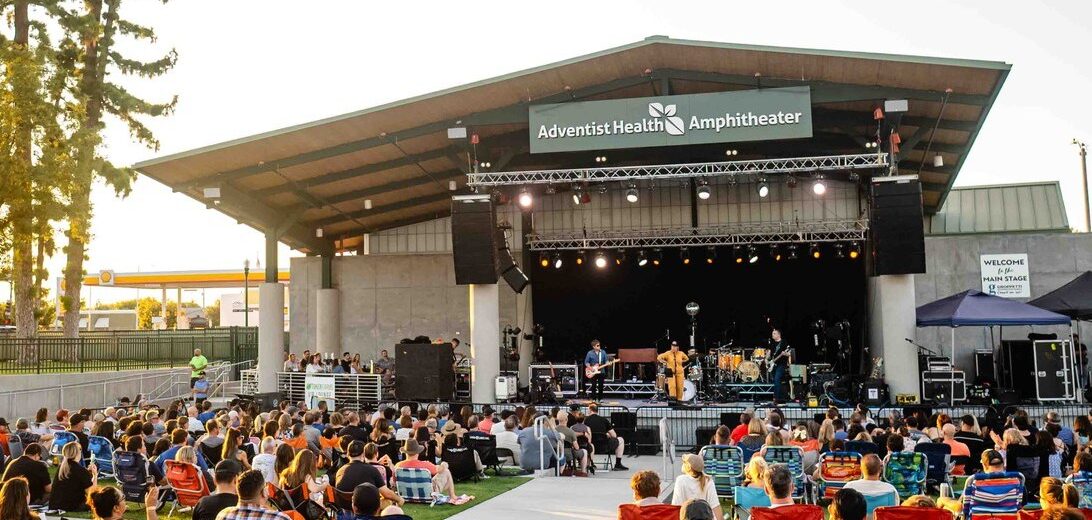The City of Tulare, California, has decided to utilize general fund reserves to support the operational costs of the newly opened Adventist Health Amphitheater at Zumwalt Park. This financial strategy aims to foster long-term growth for the venue, which began hosting events in May. City Manager Marc Mondell indicated that the amphitheater may take up to three years to achieve self-sustainability.
Since its opening, the amphitheater has attracted visitors from across the United States, with attendees coming from 18 different states and over 200 cities. Mondell expressed the city’s goal to balance operational costs with revenues generated from its concert series. He acknowledged the financial challenges the city anticipated in the initial years, stating, “I told the city council from the beginning, this is going to take us about three years to stabilize this facility.”
Despite these challenges, Mondell noted that local attendance has been low, with only 6% of event attendees being Tulare residents. To address this, the city is actively monitoring attendance and adjusting strategies to increase local engagement. “We want to continue to show this to people, try to attract more sponsors,” he added, emphasizing the behind-the-scenes efforts necessary for success.
Promoter Todd Speelman, owner and lead producer for Spade Entertainment, which oversees events at the amphitheater, acknowledged the slow start. He mentioned that the team is increasing marketing investments significantly to drive attendance. “We’re utilizing our sponsors’ databases and sending out special offers to get people to see the venue,” Speelman explained.
Mondell remains optimistic about the amphitheater’s potential. He stated, “It’s not quite as bad as you would think. We really do believe that with tweaking a few more things, we’re going to be able to get those ticket sales up.” While he is uncertain if this will happen by the end of the current year, he believes there is a strong chance of improvement by the end of next year.
The city has set ambitious attendance goals, aiming to attract between 35,000 to 50,000 visitors annually through the venue. Mondell highlighted the importance of these visitors, noting that they contribute to local revenues through hotel taxes, sales taxes, and gas taxes. In addition to concerts, the amphitheater plans to diversify its programming to aid financial stability.
Speelman mentioned upcoming events, including a four-day Christmas festival aligned with the city’s traditional parade, as part of the strategy to draw larger crowds. He is also collaborating with other promoters from the West Coast to expand the range of events held in Tulare.
In July, the City Council approved a resolution allowing the use of up to $400,000 from general fund reserves to support the amphitheater, with plans to replenish these funds through naming rights payments from Adventist Health. Mondell clarified that these funds were not initially discussed with the council for any specific use, but he recommended their allocation for operational expenses.
The amphitheater has already hosted a variety of community events beyond concerts, including free yoga classes, regional talent showcases, and school productions. Such community engagement is essential, as the venue can hold a maximum of 5,500 people, and artist fees for events range from $25,000 to $150,000 per show.
Mondell emphasized the need for patience in the venue’s development, stating that new businesses typically do not achieve profitability in their first year. He reiterated the city’s commitment to eventually covering operational costs, noting, “It takes time, and I won’t know that for two or three years.” As the amphitheater continues to evolve, Tulare is poised to strategically grow its cultural and economic footprint in the region.
